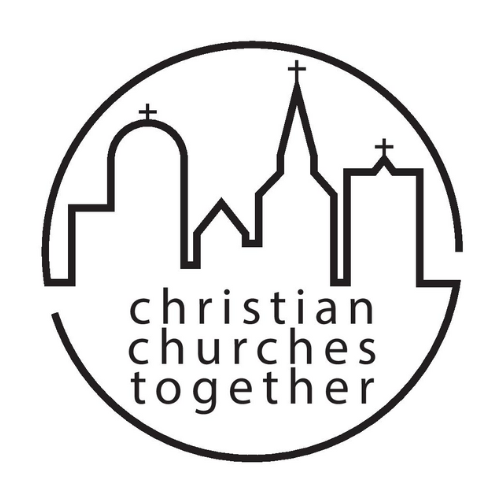2019 ANNUAL CONVOCATION ANNOUNCEMENT
On the 400th Anniversary of the Forced Migration and Enslavement of African Peoples from Angola to Fort Monroe and Jamestown
Christian Churches Together in the U.S.A. (CCT) gathers Christians from a wide range of traditions to strengthen our witness to the world. This year’s participants met for our annual convocation in Montgomery, Alabama. Given Montgomery’s place in history as a former slave trade hub and first capital of the Confederacy of the United States, it was an important and timely location for our commemoration and lament of the Four Hundredth Anniversary of the forced migration and enslavement of African peoples from Angola to Fort Monroe and Jamestown, VA in 1619. As Christian pilgrims, having experienced the Legacy Museum of the Equal Justice Initiative and its Peace and Justice Garden, we contemplated the treacherous journey, inhumane treatment, and enslavement of African peoples. This included a spiritual pilgrimage retracing the steps of the historical moments of this journey.
We also considered the injustices faced by people of African descent and other enslaved peoples globally and nationally today, promoted by racist laws, racial terrorism, societal practices, and other policies that further racial inequalities and privilege certain groups over, and often at the expense of, others. The experience has also called us to question and discuss how our different communities perceive or understand the notion of “white privilege.” These realities are complex and systemic and call us to deeper reflection and prayerful action.Due to their gravitas and intricacies, the Steering Committee of CCT will consider creating a process whereby participants from the Montgomery convocation will be invited to come together, explore these issues more deeply, and refine our reflections.
The experience is envisioned as an opportunity for people to make a serious commitment to common prayer, the asking of honest questions, and Christian engagement with a spirit of love and solidarity.One tangible fruit of these discussions will be the development of a public and fully ecumenical theological reflection which will articulate how we as Christians from diverse traditions find ourselves able to collaborate for the transformation of our society. Details on how to join in these conversation sand its structure will be forthcoming.

